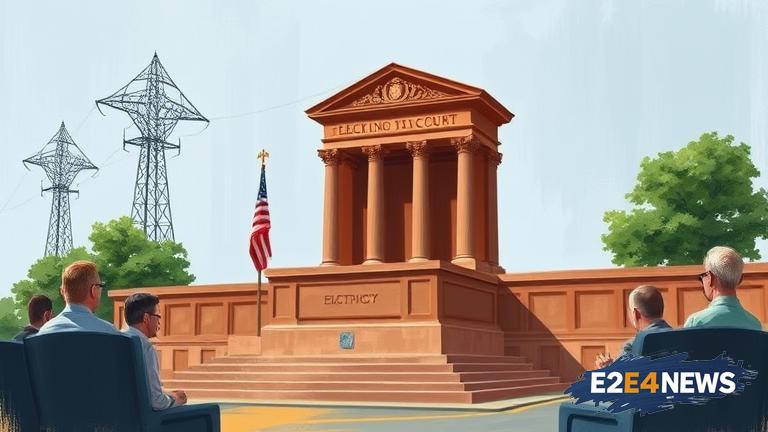The Alabama Supreme Court has made a significant ruling regarding the discussion of electricity rate hikes, determining that closed-door meetings can be held to deliberate on the matter. This decision has been met with criticism from various groups, who argue that such meetings undermine transparency and public access to important information. The case in question involved the Alabama Public Service Commission, which had been holding private meetings to discuss potential rate hikes for electricity. The commission argued that these meetings were necessary to allow for frank and open discussion among members, without the influence of external pressures. However, opponents of the practice contended that it was essential for the public to have access to these discussions, in order to ensure that their interests were being represented. The court’s ruling has been seen as a victory for the commission, which had been seeking to maintain the confidentiality of its meetings. Nevertheless, the decision is likely to be met with disappointment from consumer advocacy groups, who had been pushing for greater transparency in the rate-setting process. The issue of electricity rate hikes is a contentious one, with many consumers already struggling to pay their bills. The possibility of further increases has sparked widespread concern, and the lack of transparency in the decision-making process has only added to the sense of unease. The Alabama Supreme Court’s ruling has significant implications for the state’s energy policy, and is likely to be closely watched by other states and regulatory bodies. The court’s decision is based on the idea that closed-door meetings are necessary for the commission to carry out its duties effectively, without being swayed by external factors. However, this argument has been disputed by many, who point out that transparency and public access are essential components of a fair and accountable regulatory process. The ruling has also raised questions about the balance between the need for confidentiality and the public’s right to know. As the energy landscape continues to evolve, the issue of transparency in rate-setting is likely to remain a contentious one. The Alabama Supreme Court’s decision is a significant development in this area, and is likely to have far-reaching consequences for consumers and regulatory bodies alike. The case highlights the ongoing tension between the need for confidentiality in regulatory decision-making, and the public’s right to access information about important policy decisions. Ultimately, the ruling is likely to be seen as a setback for consumer advocacy groups, who had been pushing for greater transparency in the rate-setting process. The decision is also likely to be closely watched by other states, which may be considering similar measures to allow for closed-door meetings in regulatory decision-making. The implications of the ruling are likely to be felt for years to come, as the energy sector continues to evolve and regulatory bodies grapple with the challenges of balancing confidentiality and transparency.
